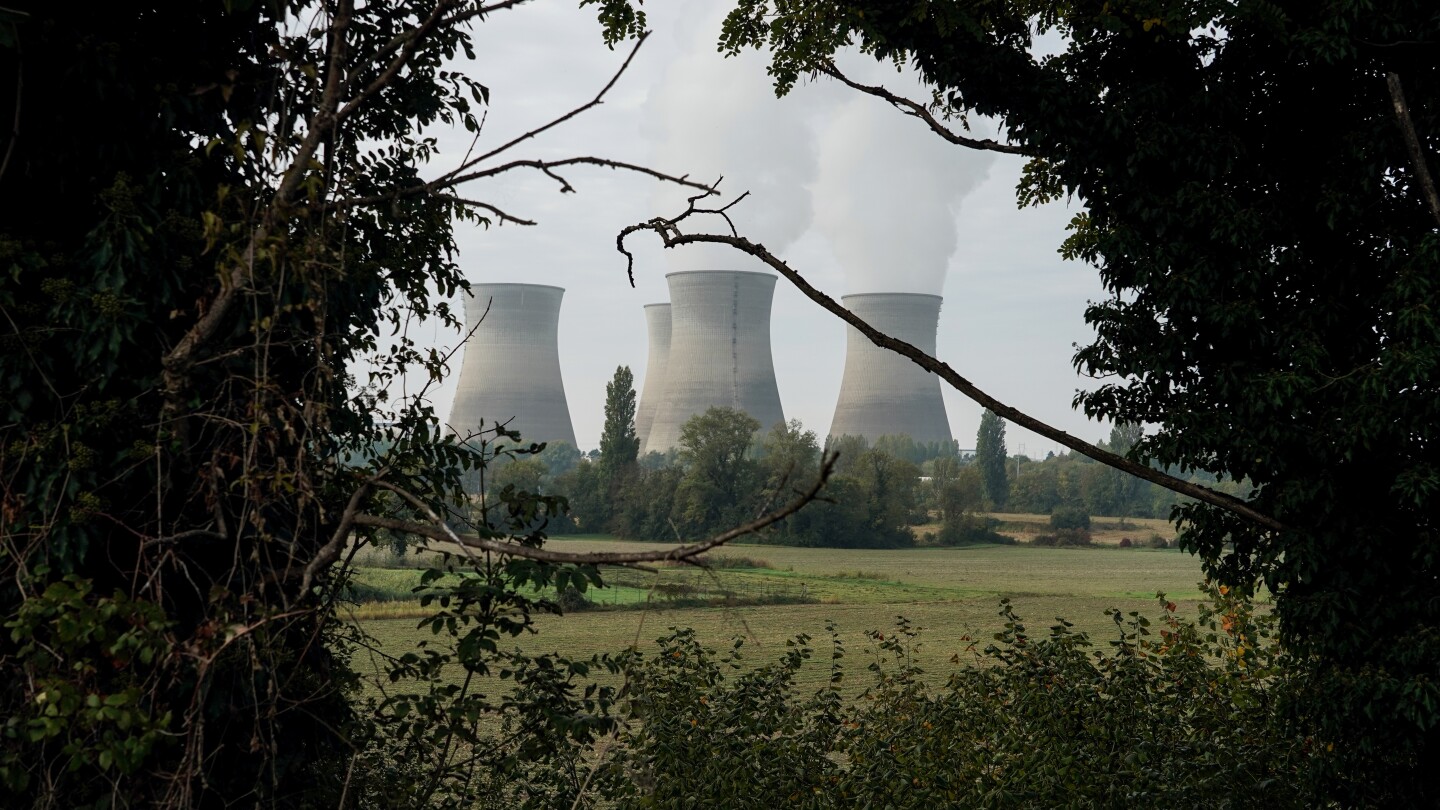Nuclear energy and natural gas will still be considered environmentally sustainable investments in the European Union following a court ruling Wednesday, potentially driving massive amounts of financing toward projects that are not widely considered “green.”
Austria had sued the European Commission, the bloc’s executive, over the inclusion of gas and nuclear in the EU’s classification system for environmentally sustainable economic activities. The system helps direct investments to the projects that are most needed to cut planet-warming greenhouse gas emissions.
The General Court at the European Court of Justice on Thursday ruled in favor of the commission, dismissing Austria’s action.
Nuclear power is a carbon-free source of electricity but it is not typically labeled as green energy, like solar, wind and other renewables. Generating power this way requires mining and processing uranium to create nuclear fuel, an energy-intensive process that produces emissions. Nuclear reactors generate radioactive waste and there’s a risk of accidents.
Natural, or fossil, gas has lower carbon emissions than coal, but it still warms the planet when burned to produce electricity.



Nuclear: great.
Natural gas: what the fuck, seriously?
I’d guess that the argument on natural gas is one of the following:
It’s replacing coal and coal emits more carbon
The problem is that coal-based power is rapidly declining, at least in the West, and it’s not a huge chunk of the generation mix anymore.
https://ec.europa.eu/eurostat/web/interactive-publications/energy-2025
Oil is a pretty expensive way to generate power. I doubt that wood pellet power plants are very common. So if you want to reduce fossil-fuel-based generation past that, you probably do have to look at reducing natural gas.
We can use it in conjunction with intermittent renewables at lower levels to avoid expensive energy storage
Solar and wind aren’t always available when someone wants to use them; they’re intermittent. You have to fill in those gaps somehow. But energy storage is expensive and for pumped hydrostorage, the most-currently-economical form, somewhat geographically-limited. So the idea is that one uses natural gas instead of storing energy from a less-carbon-intensive source to fill in those gaps…but at least you’re using less natural gas than one would if one weren’t using renewable resources and just using natural gas all the time.
Also, one more tidbit:
My guess is that Austria’s probably unhappy because Austria uses a ton of hydropower, is very mountainous and has favorable geography for hydropower, so they’d prefer to have hydropower favored.
kagis
https://lowcarbonpower.org/region/Austria
This has hydropower in Austria being 56.2% of Austria’s electricity generation.
Yeah, good points. Tangentially, I believe Switzerland has an even higher percentage of their grid coming from hydro, though I don’t know the percentage offhand
If my frequent farts are good for the planet, I’ll agree to harness the power of my awesome farts